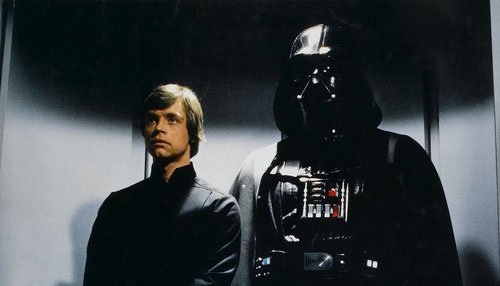
Colocation America Reviews: Candy Bars
May 6, 2016
Cyber Crime Prevention Tips for a Successful Business
May 11, 2016My name is Samantha Walters and I am what you would consider a “millennial executive” over here at Colocation America. Some Mondays (get it, get it, Samantha on Mondays – the S.O.M column) I will write a little something on whatever is on my mind from business practices to current events and everything else in between.
This week’s topic—Elevator Talk….
“Hi, my name is Samantha”
“Nice to meet you, Samantha. What do you do for a living?”
“I run a couple tech companies.”
“Oh wow, what does that really mean?”
“[blank stare]”
And so goes any conversation I have with new people.
As with most twenty-something-year-olds, I was taught to always have an “elevator speech” prepared for any situation. Over the years, as I continued to blur the lines between my career, hobbies, and personal life, my elevator speech became just six words: “I run a couple tech companies.”

Awkward…. (Photo Credit: licdn.com)
For those of you who are unfamiliar with the term “elevator speech,” let me break it down for you. An elevator speech is, essentially, a quick “commercial” about who you are. Think about, literally, being in an elevator and the person next to you asks “who are you?”—what do you say about yourself in the 30-seconds or so it takes to get from the lobby to the top floor?
According the experts from Entrepreneur and UC Davis, an elevator speech should include who you are, what you can offer and how you and your business can benefit others. Just like any good sales pitch, an elevator speech should give enough information so the person understands you and your business, and, yet, still wants to know more.
According the experts from Entrepreneur and UC Davis, I am doing it all wrong. So then why does it work?

Photo Credit: alljobopenings.com
Here is the thing—the average person doesn’t want to spend 30-seconds listening to you talk about yourself and they definitely do not care about what your business does. Of course there are exceptions to this. For example, if you are at a networking event for your industry, chances are that person standing next you at the bar cares about your business. On the other hand, if you are at a speed dating event, the person sitting on the other side of the table definitely wants to know about who you are and, depending on the person, what you do. In these two situations the practiced elevator speech outlined by experts will most likely work as in both situations the person does need to know who you are and what you do.
Then again, it probably won’t.
Here’s another thing—giving a well-rehearsed speech is just so boring. There is no doubt that a person can tell an organic response versus a my-boss-told-me-it-was-good response. In real life situations, most conversations do not start with “hi, what do you do for a living?” (Unless you count college where the “what is your major?” question is considered a pick-up line.)
Therefore, if you are going to talk about what you do or who you are, make it flow with the conversation. For example, if you are standing at a strawberry booth at your local farmer’s market and start talking to the person about strawberries and they throw in the whole “so what do you do anyways” question, perhaps you respond with a “well I am not an awesome farmer like yourself….” Remember, the person only asked because you were already having a good conversation—this is not the opportunity to sell your billing software.

Photo Credit: stilettosandsilhouettes.wordpress.com
The trick to having a good elevator speech is remembering to relate it back to the actual conversation and person you are talking to. I know, novel concept, but people forget this little piece. If you have ever talked to an entry-level sales person, you know what I am talking about. For some reason, they have a tendency to stick to their elevator speech regards of what you say.
I mean, seriously, you can say you are in the business of selling oranges and are in need of a new road-side booth and that entry-level sales guy will continue to tell you how his apple juicer works. Okay, maybe not the best example I have had but the point remains—just because you have an elevator speech perfected and rehearsed it in your mirror does not mean you need to use every time you talk to someone new.
So Then Why Does My Six-Word Elevator Pitch Work?
It’s broad enough to mean something to everyone. For example, when you think “Tech Company” what comes to mind? Do you think computers? Does the thought of your favorite tech gadget come to mind? When I mention “run” do you think I do business operations? Do you think I own the company?
No matter what you think, it sparks something in your mind. Most times, this broad approach enables me to continue a conversation with nearly everyone from any walk of life. Do not forget, an elevator speech is to establish who you are quickly and to continue the conversation, not stop it dead in the tracks.

Keeping the bad elevator pitches away…. (Photo Credit: wired.com)
Another reason why my six-word speech works is because it’s not “scary.” What do I mean by “scary”? I mean, that feeling you get when someone launches into a conversation you do not understand. You know the one – the one where your BFF works in a lab trying to stop deadly diseases and you have no idea what they mean when they go into the specifics of their job. Yeah, that conversation. No one wants to feel dumb or “out of the loop” so stay away from talking specifics about your business or product (unless it makes sense as mentioned above). For example, do any of you care about 5 kW cabinet and peering? Didn’t think so….
Lastly, the reason why my short, but sweet, elevator speech works is because it’s, well, just that, short. I do not mention my VP title or the place(s) I work. I do not explain that I am a Wildcat (the University of Arizona kind) and a Wave (yep, it’s the Pepperdine University mascot). And I, especially, do not give my full resume. There is nothing worst then hearing someone’s life story on the first meeting. I mean, it’s fine if I ask but otherwise, I do not care. With a good, quick response the rest should come out organically as the relationship builds.
With all this said, there is just one more thing you should know—you should have more than one elevator pitch. Oh, and these elevator pitches should change over time. At the end of the day, an elevator pitch is really only your gateway to starting a meaningful conversation. More importantly, if done right, it will lead to stronger business and personal ties.
So before you get on your next elevator ride with strangers, what will you say?
